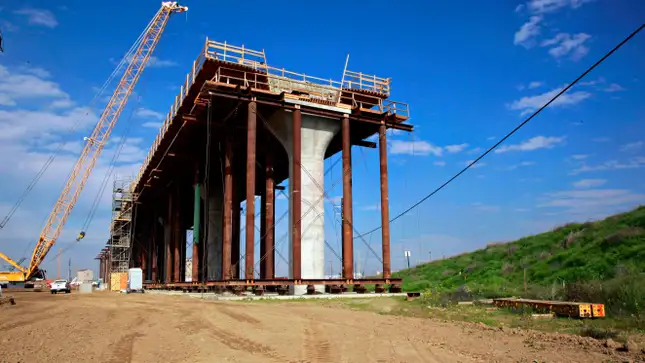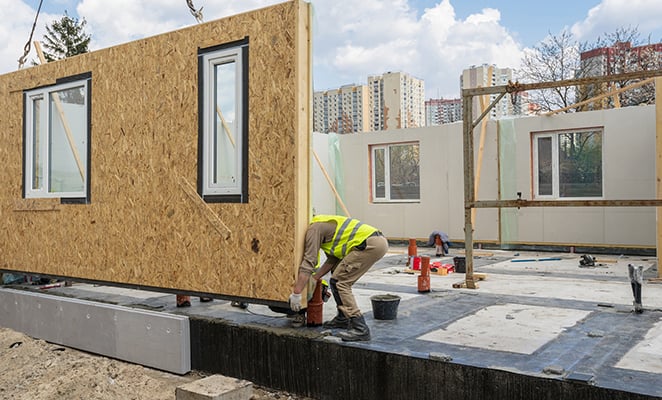The construction industry is a cornerstone of economic development and societal progress, with its workforce responsible for erecting the buildings, infrastructure, and facilities that shape our daily lives. However, despite its significance, the industry has long struggled with diversity and inclusivity. Historically, construction trades have been dominated by a homogeneous demographic, predominantly comprising white males. This lack of diversity not only perpetuates inequality but also stifles innovation and limits the industry’s ability to adapt to evolving needs and challenges. Recognizing the imperative of fostering diversity, industry stakeholders must embrace innovative approaches to attract, retain, and empower individuals from diverse backgrounds. This article elucidates the importance of such innovative strategies and provides a roadmap for their implementation, we are drawing upon existing literature, case studies, and expert insights, it delineates the barriers hindering diversity and outlines actionable recommendations for industry stakeholders to embrace innovation and promote inclusivity.
The construction industry plays a pivotal role in shaping our built environment, yet it faces a persistent challenge in achieving diversity within its workforce. Recognizing the need for innovative approaches to address this issue is crucial for fostering inclusivity, tapping into a broader talent pool, and ensuring sustainable growth.
Barriers to Diversity in the Construction Trades: Before delving into innovative solutions, it is crucial to understand the underlying barriers that impede diversity within the construction industry. Several factors contribute to this disparity:
- Perceived Inaccessibility: Many individuals, particularly women and minorities, perceive the construction trades as unwelcoming or inaccessible due to entrenched stereotypes and biases.
- Lack of Representation: The underrepresentation of diverse individuals in leadership positions and workforce showcases a lack of role models, making it challenging for marginalized groups to envision themselves thriving in the industry.
- Limited Outreach and Recruitment Efforts: Traditional recruitment methods often overlook diverse talent pools, leading to a homogenous workforce.
- Unconscious Bias and Discrimination: Implicit biases and discriminatory practices in hiring and workplace culture deter diverse individuals from pursuing or staying in construction careers.
- Workplace Culture and Inclusivity: Hostile work environments, harassment, and lack of support networks alienate diverse workers, contributing to high turnover rates.
Importance of Innovative Approaches: Addressing these barriers necessitates innovative thinking and proactive measures. Innovative approaches are essential for several reasons:
- Broadening Talent Pool: By embracing diversity, the construction industry can tap into a broader talent pool, leveraging diverse perspectives, skills, and experiences to drive innovation and problem-solving.
- Meeting Future Demands: With demographic shifts and evolving societal values, the construction industry must adapt to remain relevant. Innovative approaches to diversity ensure that the workforce reflects the communities it serves, enhancing cultural competence and customer satisfaction.
- Enhancing Organizational Performance: Diverse teams have been shown to outperform homogenous ones, fostering creativity, resilience, and adaptability. By promoting diversity, construction firms can gain a competitive edge and achieve sustainable growth.
- Social Responsibility and Equity: Embracing diversity is not only a business imperative but also a moral obligation. By creating inclusive workplaces, the construction industry can contribute to social equity and economic empowerment, fostering a more just and equitable society.
Innovative Strategies for Enhancing Diversity: To foster diversity and inclusivity in the construction trades, industry stakeholders can adopt a range of innovative strategies:
- Targeted Outreach and Recruitment: Implementing targeted recruitment campaigns that reach out to underrepresented groups and highlight career opportunities in construction can broaden the talent pool.
- Diversity Training and Education: Providing diversity training for hiring managers and employees can help mitigate unconscious biases and foster a more inclusive workplace culture.
- Mentorship and Networking Programs: Establishing mentorship programs that pair diverse employees with experienced professionals can provide support and guidance, facilitating career advancement and retention.
- Flexible Work Arrangements: Offering flexible work arrangements, such as remote work options or alternative scheduling, can accommodate diverse needs and promote work-life balance.
- Partnerships and Collaborations: Collaborating with community organizations, educational institutions, and government agencies can create pathways for underrepresented individuals to enter and advance in the construction industry.
- Leadership Development Initiatives: Investing in leadership development programs that cultivate diverse talent and promote inclusivity in leadership positions can foster a more representative workforce.
Case Studies and Best Practices: Examining successful case studies and best practices can offer insights into effective strategies for enhancing diversity in the construction trades. For example:
- The Helmets to Hardhats Program: This program facilitates the transition of military veterans, including women and minorities, into construction careers through apprenticeships and training opportunities.
- Skanska’s Diversity and Inclusion Initiatives: Skanska, a global construction company, has implemented various initiatives, including unconscious bias training and diversity councils, to promote inclusivity and diversity within its workforce.
- The National Association of Women in Construction (NAWIC): NAWIC provides advocacy, networking, and professional development opportunities for women in the construction industry, helping to overcome barriers and promote gender diversity.
- HIRE 360 Chicago has grown to become a national leader in this space. Its success serves as a blueprint for America’s largest cities seeking to replicate its innovative model.
- Nacional Group– The Nacional Group is on the forefront of the initiative to inspire and empower the next generation of leaders in the industry through advanced focus on inclusion
Conclusion: In conclusion, recognizing the need for innovative approaches to enhance diversity in the construction trades is paramount for fostering inclusivity, driving innovation, and ensuring sustainable growth. By addressing the barriers to diversity and embracing proactive measures, industry stakeholders can create more welcoming and inclusive workplaces that reflect the diversity of the communities they serve. Through targeted recruitment efforts, diversity training, mentorship programs, and collaborative partnerships, the construction industry can harness the full potential of its workforce and build a more equitable and resilient future.





